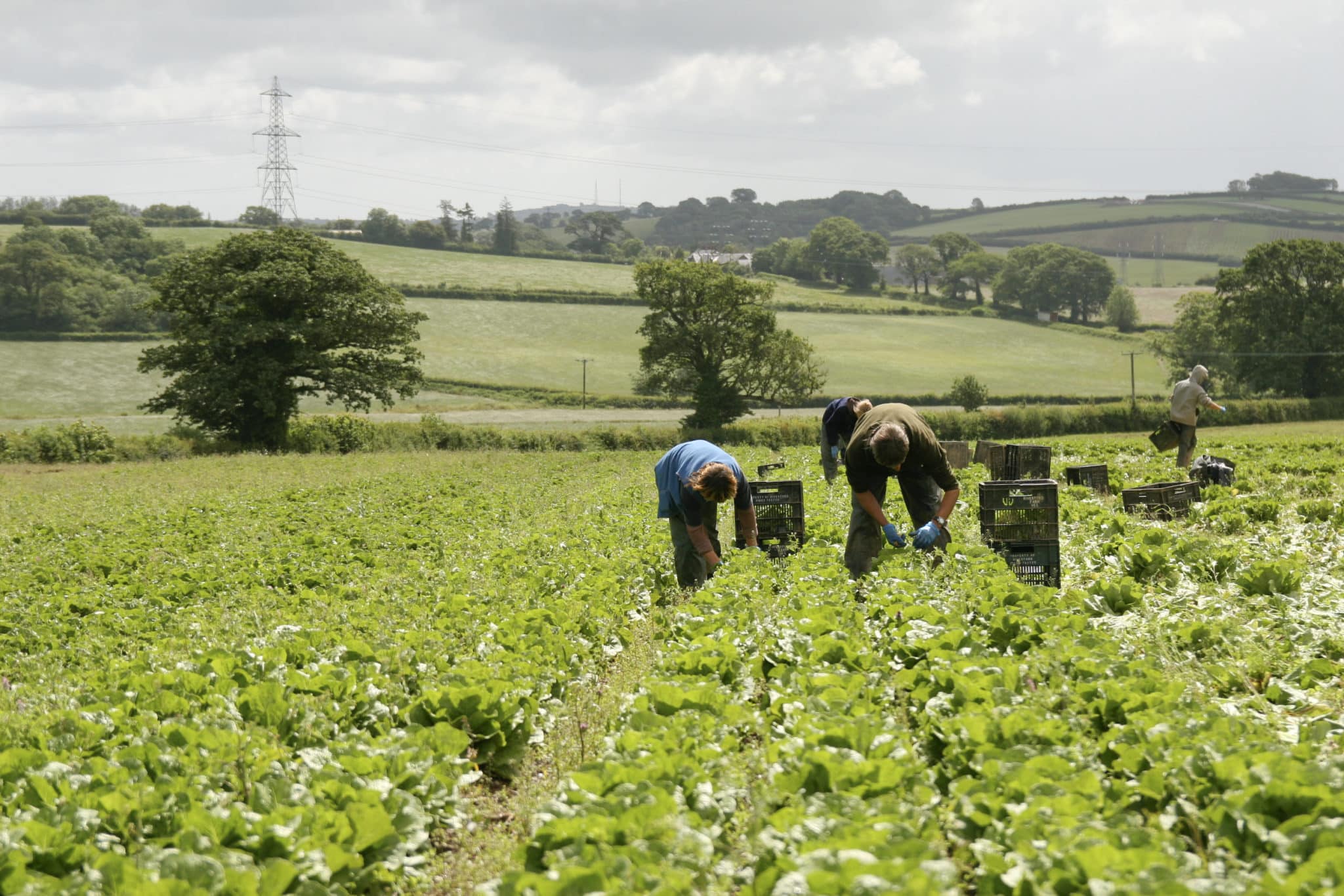Last week, someone replied to a Twitter post I shared, as social media manager at Riverford, about nature-friendly farming policies. It read: “Never been wallet-friendly though, have you Riverford?” While this reply wound me up a little, especially as it wasn’t relevant to the tweet, he isn’t alone in his views. We see comments about our prices regularly, and we recognise that organic food is generally more expensive.
So, I replied to explain that no, we’re not cheap. But cheap food causes many of our problems. Research by the Sustainable Food Trust shows that the price we pay for our food at the till is, by most measures, half of its true cost. We pay for it twice over (at least; many estimate more) through the cost of clearing up the mess that food production, processing, and distribution creates: removing pesticides and nitrates from our water supply, soil loss, biodiversity loss, plastic pollution, as well as health-related issues and more. Arguably, if farmers, manufacturers, and retailers had to clear up this mess and compensate for these losses, organic food would end up cheaper than non-organic.
The price we pay for our food at the till is, by most measures, half of its true cost.
One of the biggest costs for organic producers comes from investing in the long-term fertility of their soil and health of their farm environment; perhaps something that we should all be valuing more.
At Riverford, we go beyond organic. We also want to provide food that is packaged and delivered in a sustainable way. It is very important to us that everyone gets paid and treated fairly (from co-owners, to other UK farmers, to workers picking our bananas and avocados many miles away). And we want to invest in the future of sustainable farming, by allocating profits to regenerative farming projects, tree planting, and more. So no, we are not cheap – but we are proud to explain why. Our prices represent the true cost of producing sustainable, fair, nutritious, organic food. And I’d say there is a hell of a lot of value in that.
Note: We are very aware that organic food is not accessible for many – now more than ever, during the cost-of-living crisis. This is unacceptable; good, healthy, sustainable food should be available to all. There are many reasons why it isn’t. We must keep up the fight to try to change the system; if you’d like to get involved, visit foodfoundation.org.uk. Meanwhile, we continue to help where we can with weekly donations to food banks and our charity partners.









Nothing cheap is truly cheap- it’s probably more true of clothing than it is of food- because in the textile industry the clean up doesn’t happen at all, because it is thousands of miles away.
To stop this you need strong legislation to stop huge companies dumping the cost elsewhere- but what government is going to do that?
I too was irritated by that comment – we’ve been having a riverford box for many years, at least 17 years and still have the recipe cards that came with the boxes along with Guy’s rant and have a signed copy of the original cook book that was launched along with Satish Kumar (still one of the best meals we’ve ever had) at the HQ. We have always been on a low income, one wage with 3 kids (all adults now) and we made a conscious choice to spend more of our disposable income on our welfare rather than the usual items selected by the majority. We went with riverford because it was an investment in ours, future generations and the planets overall wellbeing. Now we’re in a position to pause deliveries as my own growing skills have improved and we can freeze and preserve bounty that often coincides with what’s coming in the boxes. I still think it represents good value for the reasons i’ve given and think it was exactly the right choice Guy made originally and then the latter ones whereby its now co-owned. Our delivery drivers have always been brilliant as has the customer service whenever we have small problems or help with changing orders etc. And being able to see in advance what is coming is so helpful in meal planning and we dont have to go to the shops but keep to that seasonal regime. We also felt your response to covid and that sudden rush to join was really well managed, so you all have our vote and custom and whenever we’ve had to budget supporting riverford has never been in question.
It would be great if ‘someone’ did a ‘scientific study’ of the relative nutritional content of organic vs non-organic vegetables. I’m sure the results would be striking, but not surprising to anyone committed to eating organic veg. Anecdotally, I can say that when I’ve cooked Riverford veg for friends, they often remark on how filling and satisfying they are. The point being that the argument about cost is specious, really, without the nutritional value being taken into account! (Additional, of course, to the environmental and ethical benefits.) In other words, you need less organic vegetables because they are intrinsically more nourishing. Like Gary, below, I’ve also been a Riverford customer for a really long time, and have nothing but praise and gratitude for all involved.